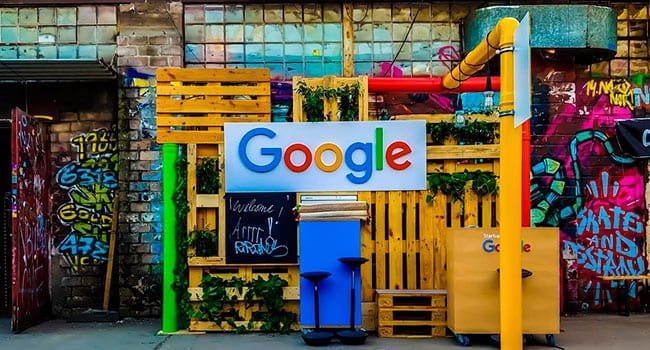 “The Google of today is a monopoly gatekeeper for the internet,” reads the U.S. Department of Justice lawsuit against the tech giant.
“The Google of today is a monopoly gatekeeper for the internet,” reads the U.S. Department of Justice lawsuit against the tech giant.
The document filed on Oct. 20 alleges the company has used exclusionary agreements to block out competitors. Google accounts for 80 per cent of U.S. internet searches and 30 per cent of U.S. digital ad dollars.
But if behavioural psychologist Robert Epstein is right, Google is also a “monopoly gatekeeper” for favoured politicians and parties. This lawsuit could improve democracy as much as the marketplace.
Epstein, senior research psychologist at the American Institute for Behavioral Research and Technology and the former editor-in-chief of Psychology Today, says Google wields a shocking amount of power.
In 2015, Epstein wrote in Politico that “Google Inc. has amassed far more power to control elections – indeed, to control a wide variety of opinions and belief – than any company in history.” He estimated that manipulation of the search algorithm could swing at least 20 per cent of voters, and even 80 in some demographic groups. Through that alone, Google could flip 25 per cent of national elections worldwide.
Epstein led five experiments with 4,500 participants in two countries and concluded that the search engine manipulation effect was “one of the largest behavioural effects ever discovered.” By favouring one candidate or another in search results, “Trust, liking and voting preferences all shifted predictably.” In one national experiment in the U.S., Epstein’s team was “able to shift a whopping 80 per cent of moderate Republicans in any direction we chose.”
An Epstein experiment on over 2,000 undecided voters during the 2014 election in Lok Sabha, India “showed that search rankings could boost the proportion of people favouring any candidate by more than 20 per cent – more than 60 per cent in some demographic groups.”
Epstein says higher search rankings are a plausible reason that Indian Prime Minister Narendra Modi outscored his rivals in Google search activity by over 25 per cent for 61 straight days leading up to the final election date.
Epstein laid out three scenarios of varied culpability where Google would nevertheless change elections. He argued that even if every Google employee acted with the intent to be unbiased, the algorithm would nevertheless favour one candidate over another in search results and sway voters.
In another scenario, Google would act with integrity but one or more mischievous employees could hijack results to varying degrees. At worst, Google would intentionally manipulate the outcomes.
This scenario has a historic precedent, as Epstein has recognized. During disputes over the contested 1876 election, the pro-Republican Western Union had a monopoly on the telegraph service. Western Union used a proxy in the Associated Press to leak the telegraphs of key Democrats and got them to the Republican side – all the while insisting that telegraphs were always kept private. In time, the Democrats conceded the election.
The Democrats have been Google’s clear favourite for years. In 2012, its executives donated $804,000 to Barack Obama’s campaign and just $37,000 to Mitt Romney’s.
“Do you happen to know who the Hillary Clinton campaign’s number one supporter was in 2016?” Sen. Ted Cruz asked Epstein during senate hearings in 2019. “Alphabet, the parent company of Google. … I would think anybody, regardless of whether or not you favour one candidate or another, should be deeply dismayed about a handful of silicon valley billionaires having that much power over our elections to silently and deceptively shift vote outcomes.”
Epstein told Cruz that Google swayed millions of voters to Clinton. “The range is 2.6 and 10.4 million votes depending on how aggressive they were in using the techniques that I’ve been studying, such as the search engine manipulation effect, the search suggestion effect, the answer bot effect and a number of others – they control these and no one can counteract them.”
A hidden camera by Project Veritas recently confirmed Google’s bias and power. “If I say that tomorrow, that I’m a Trump supporter, I’d probably lose my job,” Google executive Ashwin Agrawal said. “The truth is, a deep platform is influencing you in a way you didn’t sign up for.”
Oh? How so?
“There are many ways’ to influence elections … I think ads is one way,” Agrawal said. “I think another way is search results. … YouTube is going to be another one.”
Google acquired YouTube in 2006. By now it accounts for 73 per cent of online video worldwide. And Gmail accounts for 43 per cent of the world’s email service market.
If a company ever deserved an antitrust lawsuit, it was this one.
Lee Harding is a research associate for the Frontier Centre for Public Policy.
Lee is a Troy Media Thought Leader. Why aren’t you?
For interview requests, click here. You must be a Troy Media Marketplace media subscriber to access our Sourcebook.
The views, opinions and positions expressed by columnists and contributors are the author’s alone. They do not inherently or expressly reflect the views, opinions and/or positions of our publication.

